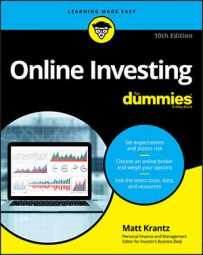Active investor: An investor who tries to routinely beat the rest of Wall Street by a wide margin. Active investors have many different strategies, including trying to buy stocks when they think they’re cheap or stocks that have been rising rapidly in the recent past.
After-hours trading: Regular trading of stocks ends at 4 p.m. EST, but investors can continue to buy and sell stocks after that time.
Ask price: The lowest price a prospective seller is willing to accept for a share of stock.
Bid price: The price a prospective investor is willing to pay for a share of stock.
Bond: IOUs issued mainly by governments, agencies of governments, or companies to finance their operations or projects. Buyers of bonds are given a promise they’ll get their money back, plus interest, over a preset period of time. Bonds are often called fixed-income investments because interest payments are fixed.
Earnings season: The period of about three weeks following the end of a quarter when companies report their financial performance. Earnings reports contain information about a company’s profits and financial standing.
Fundamental analysis: A method of evaluating investments by studying a company’s earnings, growth rate, or other data related to the performance of the company’s operations.
Index: A basket of stocks or other investments selected to represent a certain market, style of investing, or market. The three most popular stock market indexes are the Dow Jones Industrial Average, Standard & Poor’s 500, and NASDAQ composite.
IPO: Short for initial public offering. IPOs are shares of companies offered to public investors for the first time and are the way that a private company becomes a publicly traded one.
Online brokerage: An organization that works on your behalf to buy, sell, and hold your stocks and other investments and allow you to access your account online. Brokers, including online brokers, must be registered with the Securities and Exchange Commission.
Options: Financial tools that give their owners the right, but not the obligation, to buy or sell a stock or other investment by a certain date at a prearranged price. Options can be used to guard against large losses or by speculators to enhance returns.
Passive investor: An investor who generally believes it’s impossible for most people to consistently beat the stock market and therefore buys investments and hangs onto them. Many passive investors invest in broad and diversified index funds, which are highly tax-efficient and outperform many investors who try to beat the market with market timing and stock picking.
Phishing: A type of cybercrime where the bad guys tempt computer users to click on seemingly legitimate websites and enter personal information, which is then stolen and sold or used.
Prospectus: The in-depth document required to be filed with regulators by mutual funds, exchange-traded funds, and companies going public for the first time in an IPO.
Regulatory filings: Financial reports required by regulatory bodies, most typically the Securities and Exchange Commission, that give investors access to material information. Annual reports, quarterly reports, and proxy statements, often known by their technical names 10-K, 10-Q, and DEF 14, are available online and give investors information about a company.
Short seller: Investors who are betting that the value of an investment will fall. These investors borrow an investment, sell it immediately, and then buy it back later at a hopefully lower price in order to return it to the person they borrowed from.
Stock: A piece of ownership in a company that can be bought or sold to other investors. Stocks are sometimes referred to as equities.
Technical analysis: A method of evaluating investments based on the movements of the stock price in the past. Technical analysts generally study stock charts and look for patterns they say can help predict future price movements.

